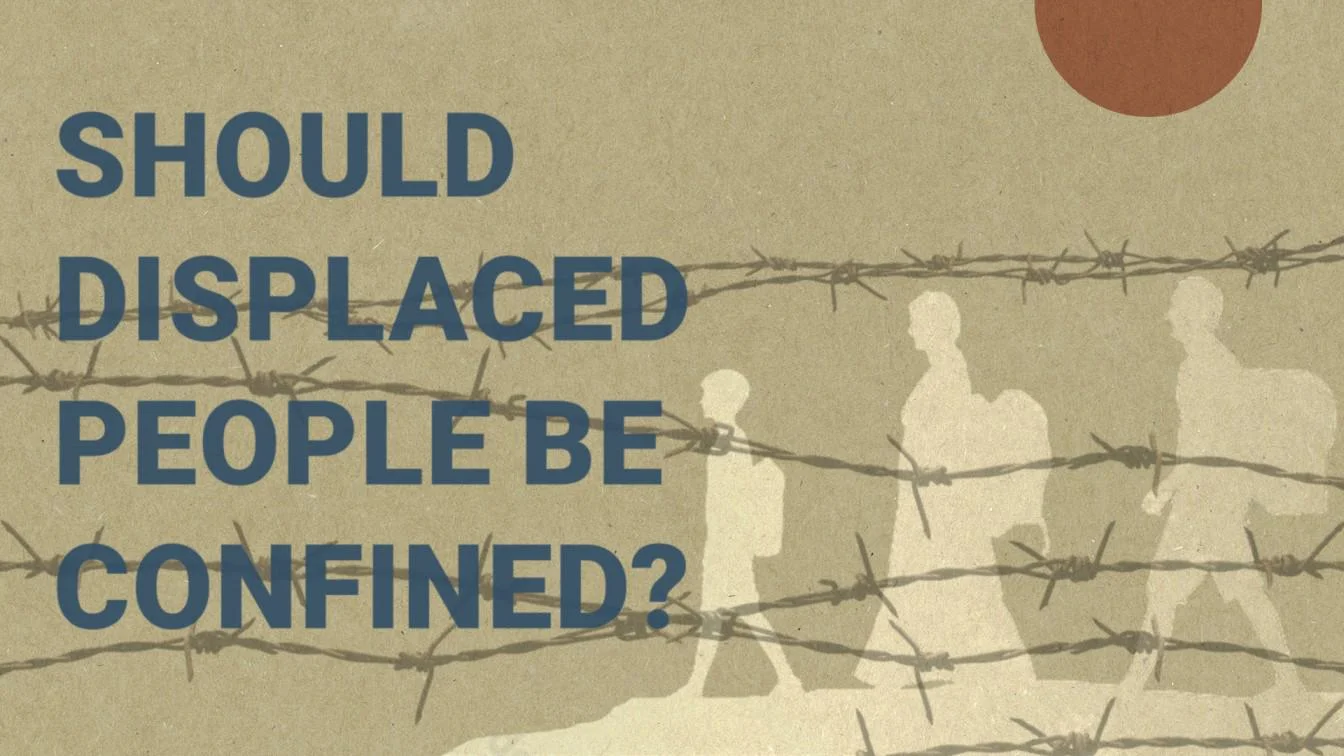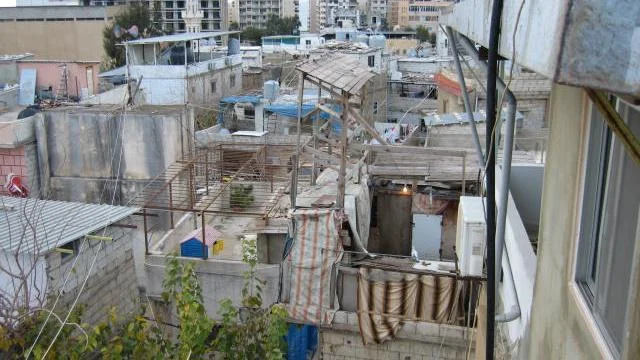Displacement Urbanism

Forced migrants, humanitarianism and urbanisation in the Global South
Research project by Dr Romola Sanyal

▶ Should displaced people be confined?
Overview
We are faced with an unprecedented crisis of global displacement we are told, as nearly 80 million people are displaced due to conflicts, persecution and various forms of violence.
While many continue to be placed in camps, over half of them live in cities, particularly in the Global South. Here, they live side-by-side with urban communities, sharing resources (often meagre), infrastructure and space (often limited), for increasingly protracted periods of time.
Cities in the Global South have been studied by urban scholars for decades. Topics such as urban poverty, housing, informality amongst others have been the mainstay of urban scholarship.
But whilst this work has been rich and compelling, it has not accounted for the millions of people who live in these cities as displaced populations.
Equally, the study of forced migration has produced considerable scholarship, on legal rights of displaced people, on their social, political and economic activities including in urban areas as well as work around sanctuary cities and hospitality.
Yet, the analysis of displacement through an urban lens, as an urban question remains limited, particularly in the Global South.

How do we conceptualise Southern Urbanism using the idea of displacement?
This project uses a postcolonial lens to answer this question by putting forward the concept of Displacement Urbanism. It argues that the urban condition in the Global South is created through displacement - through the categorisation and politics of the displaced, their relationships with local communities and governments and the interventions of the humanitarian system.
The project addresses the question of displacement as a spatial issue where I centre the city as the key site of analysis.
I ask four broad analytical concerns and address:
- If displacement can be understood as a key analytical framework to understand contemporary urban transformations, especially in the Global South. Through this work, I develop a new theory of displacement.
- How the bodies of displaced people, their reception and continued support through protracted crises by often impoverished host communities (themselves often subject to displacement) their support through local and international aid and civil society organisations come together to create urban space. Here, I draw together often divergent literatures on urban displacement and forced displacement, and bring them into conversation with each other. How do we think about the city as space made through multiple, intersecting displacements?
- In thinking of the above, I ask, how the displacement question helps us rethink our theories of urbanisation, how it speaks back to the theorisation of cities and contributes to the ongoing decolonisation of urban studies. In other words, I aim to bring a forced displacement lens to think about transformations in cities of the Global South.
- How the urban question helps us retheorise and decolonise refugee studies. Here, I aim to bring an urban lens to the analyses of displacement, to think of displacement as an urban issue.
Scale and analysis

The project is global in scale and transnational in its analysis. Instead of engaging in problematic comparisons, it aims to draw places into conversations with each other. In doing so, it engages in a process of decolonising urban and forced migration studies, and thinking conceptually from the Global South.
It draws on work conducted previously in Lebanon and India on urban refugees and urban refugee camps as well as on ongoing work in Greece and Jordan on urban interventions by INGOs and civil society organisations.
The work thus analyses the urbanisation of displacement through the eyes of refugees, local communities and governments as well as civil society organisations and international non-governmental groups.
It demonstrates how each in turn works to reshape urban space and how they encounter each other in these processes.
The work includes a range of methods, from life histories, semi-structured interviews, focus groups to archival work and cognitive mapping.
Funding
Part of this work is funded through the British Academy Mid-Career fellowship whilst earlier rounds of research have been funded by the Foreign Language and Area Studies Fellowship (US govt/UC Berkeley), Al Falah Fellowship (UC Berkeley), Social Science Research Council International Dissertation Research Fellowship and the Academic Collaboration Grant with Arab Universities (Emirates Foundation/LSE).
Outputs
- A research monograph titled Displacement Urbanismthat analyses displacement as a key tool of urban transformation in the Global South.
- LSE Research Showcase
- Should displaced people be confined? | short film
- Who are the displaced in urban areas? | short film
- Listen to the Displacement Urbanism podcast.
- How Refugees Transform Our Cities | LSE Festival Shorts 2023